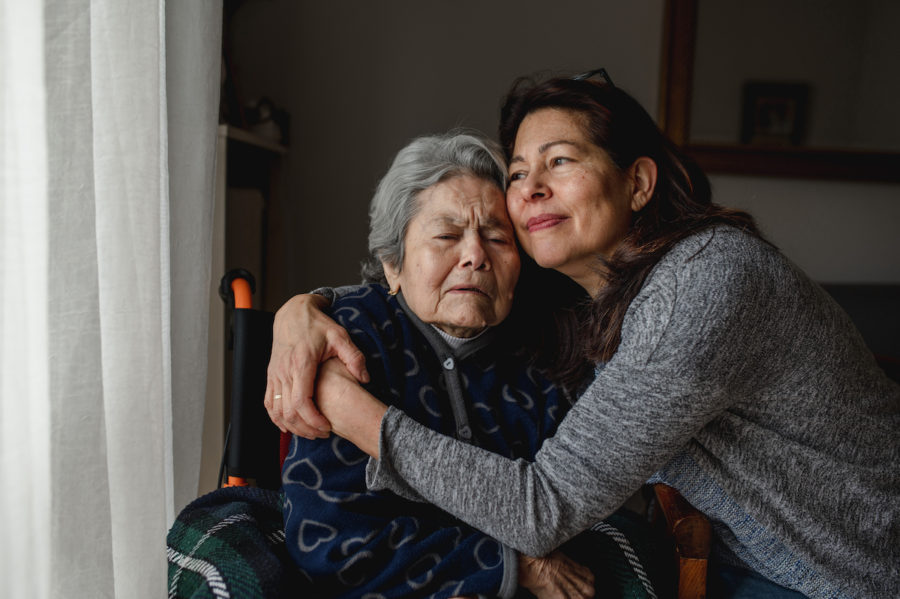Mother’s Day can be heartbreaking for adult children who have moms with dementia. It’s painful when your mother can’t remember your visits, her grandkids’ birthdays, or when she doesn’t even recognize you. Mother’s Day can feel especially difficult when you’re part of the “sandwich generation,” responsible for caring for your own kids and for your mom.
It’s important that adult children who are caregivers give themselves permission to feel sad or frustrated. Strong feelings often surface around Mother’s Day and other commemorative days.
To make it through Mother’s Day, it’s important that caregiver children focus on what their mothers are able to do. If you always took your mother out to brunch or had a big family gathering, understand that may not happen this year. But you can still make Mother’s Day special. Here are Mother’s Day activities for moms with dementia:
- Lunch at home. Traveling or too much stimulation can agitate those living with dementia, so making your mom’s favorite food or ordering her favorite takeout commemorates Mother’s Day without disrupting her schedule.
- Rethink gifts. Consider creating a photo album for your mom, buying her a therapy doll, or giving her a puzzle designed for those with dementia.
- Look at childhood photos. If your mom’s long-term memories are accessible, she may enjoy seeing pictures and hearing stories about when you were young.
- Play music. Your mom may find music soothing, and singing or dancing with her can help you connect and bring her joy.
- Focus on her hands. People with dementia can be anxious. It may be soothing to hold hands with your mom, rub lotion onto her hands, or massage her hands.
- Compliment your mother. Tell her how pretty she is, how much you love her and enjoy spending time with her. Focus more on the quality of time rather than the quantity of time.
- Self-appreciation. Your mom may not be able to express her love or appreciation for all that you do. Remind yourself that you’re a wonderful child and acknowledge the love, care, and support you provide.
- Reach out to your support network. If you’re in a dementia caregivers support group, schedule a meetup or a Zoom call with those in your circle who are also struggling. Or, call friends for whom Mother’s Day is also difficult.
Adult children who are dementia caregivers should prioritize their own health and well-being while navigating Mother’s Day’s emotional challenges. Even if your mom doesn’t know what day it is, you do. Dementia caregiving is a long-term endeavor, so it’s important to be compassionate and gentle with yourself during emotionally triggering holidays.
If you need dementia caregiver support, please join my dementia support group or schedule your 30-minute consultation.
Connect with Tami
Get information, guidance, and support delivered to your inbox each month.

